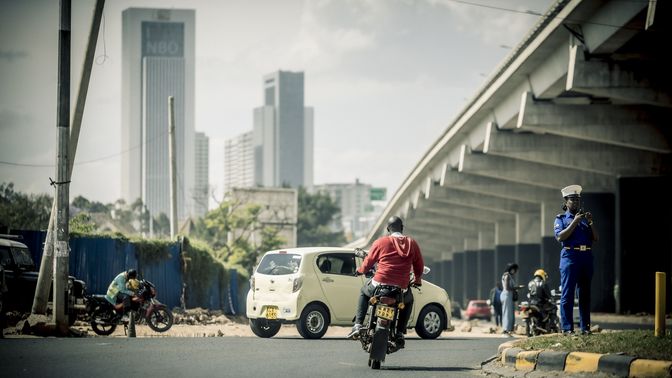
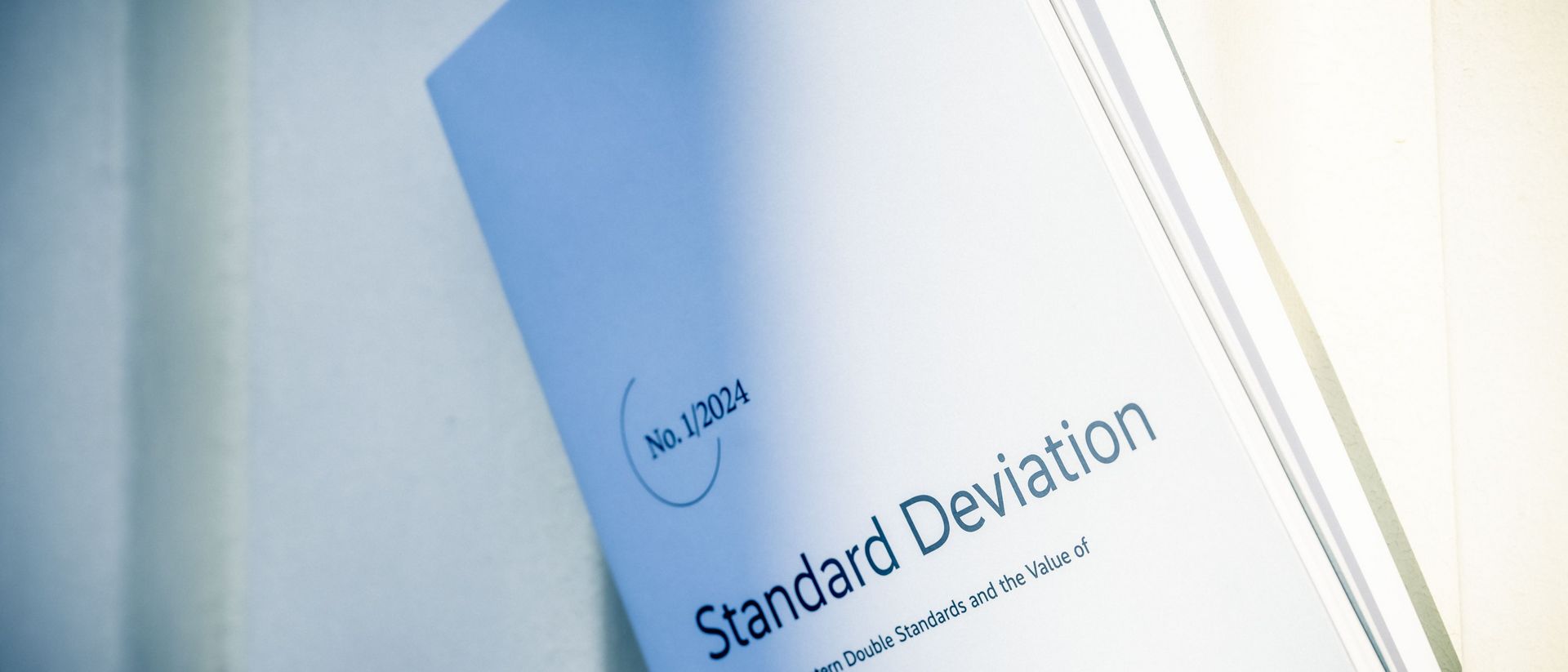
Standard Deviation
Views on Western Double Standards and the Value of International Rules
 AuthorSophie Eisentraut
AuthorSophie Eisentraut
 AuthorSophie Eisentraut
AuthorSophie Eisentraut
Key Points
Criticism that in their foreign policies, Western states diverge from stated principles not only seems omnipresent these days. The discussion of Western double standards has also become a proxy debate about the value of universal principles and rules.
On the one hand, this criticism reflects increasing concern that, amid growing geopolitical competition, the transatlantic partners and their allies are reducing their commitment to international principles.
On the other hand, double standards accusations are used to challenge the very idea of universal rules as such. They are used to relativize acts of rule revisionism or to justify an entirely unprincipled foreign policy approach.
Western states are confronted with a dilemma, which is bound to grow as geopolitical competition intensifies: They fear that more self-critical engagement with their inconsistencies might strengthen the opponents of international rules. Yet, ignoring allegations of hypocrisy is not an option either, as it breeds cynicism about the validity of universal rules.
Western states’ responses should focus on three elements: reducing inconsistencies that conflict with many countries’ longstanding demands for greater justice and inclusion; adopting more honest communication about when consistency meets its limits; and exercising stronger pushback against what is implied in some governments’ criticisms, namely that an order characterized by double standards is no longer preferable to an order without standards at all.
Accusations of double standards, hypocrisy, or exceptionalism levelled at the West are omnipresent these days. One such instance came in the form of a widely noted criticism by India’s External Affairs Minister, Subrahmanyam Jaishankar, who argued that the way Europeans have dealt with Russia’s war against Ukraine suggest they think “Europe’s problems are the world’s problems, but the world’s problems are not Europe’s problems.”[1] In another case, it was the Indonesian Defense Minister and President-elect, who made the accusation that, when it comes to pushing for peace, Western governments seem to “have one set of principles for Ukraine and another for the Palestinians.”[2] Western states, so the underlying allegations by governments in the Global South go, may claim fealty to globally applicable rules and principles. In their foreign policies, however, they all too frequently deviate from these principles or follow them inconsistently. The principles in question include those of territorial integrity, of support for democratic governance and respect for fundamental human rights, and of open and nondiscriminatory trade. But they also include a pledge to combat global equalities – a commitment to “leaving no one behind”[3] as enshrined in the Agenda 2030 and the UN Sustainable Development Goals. Together, these principles make up what is often referred to as the rules-based international order.
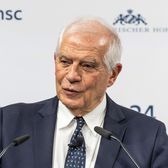
Wherever I go, I find myself confronted with the accusation of double standards.[4]
Josep Borrell•EU High Representative for Foreign Affairs and Security Policy, Oxford University, May 3, 2024
The accusations themselves are hardly new.[5] Leaders in the Global South have long criticized the United States and European governments for applying international rules inconsistently or for putting themselves above the law. Regarding disrespect for other states’ territorial integrity, they have pointed to the US-led intervention in Iraq or invoked the UK’s unwillingness to return the Chagos Island to its former colony Mauritius.[6] When it comes to double standards on supporting human rights and democratic rule, they have referred to illegal detentions conducted in the name of Washington’s war on terror or to European leaders’ pacts with North African autocrats aimed at curbing Europe-bound migration.[7] And concerning the West’s failure to promote greater global equality – in line with their pledge to “leave no one behind” – they have cited broken promises on delivering coronavirus vaccines and providing meaningful debt relief.[8] Moreover, they have regularly brought up a perceived Western reluctance to reform international institutions in a way that provides countries of the Global South with better voice and representation.
Yet, with Russia’s invasion of Ukraine and Israel’s war in Gaza, something seems to have changed. Just as Western states have ramped up their discourse about the need to defend international rules, governments in Africa, Asia, Latin America, and the Middle East appear to have become more outspoken about what they perceive as double standards applied by Europe and the US. Moreover, the accusations reflected in leaders’ discourse have a new quality. Above all, they reflect growing cynicism about the idea of universal rules and principles themselves. Debates about Western double standards have seemingly become a proxy debate about the validity of universal standards and thus about the rules-based international order as such.
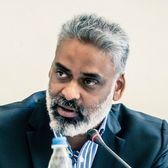
Mauritius has a principled approach with respect to the Russia-Ukraine war, in accordance with the UN Charter and our respect for the territorial integrity and sovereignty of all states […]. This explains our vote in favor of the UN General Assembly Resolutions on the Aggression Against Ukraine […]. However, it is a matter of regret that when it comes to the territorial integrity and sovereignty of Mauritius over the Chagos Archipelago, the same standards do not apply and no one cares.
Maneesh Gobin•Mauritian Foreign Minister, Munich Strategy Retreat Bellagio, June 17, 2024
On the one hand, governments in the Global South are using accusations of double standards to ramp up normative pressure on the West to improve its record of consistency. These actors’ allegations of Western hypocrisy indicate growing frustration at a perceived mismatch: between Western states’ recent record of compliance with international standards and the West’s increasingly universalist rhetoric and touting of the rules-based international order. Moreover, their criticism also reflects concerns that, amid growing geopolitical competition, the transatlantic partners and their allies are further reducing their commitment to upholding international principles.
On the other hand, accusations of double standards are used to challenge the very idea of universal rules and principles as such. Some governments use allegations of hypocrisy to downplay the role of international principles or pursue what some have called a “de-universalisation”[9] of international rules. This includes autocracies like China and Russia. They point to Western double standards to distract from their flagrant violations of international norms and to relativize their revisionism of international rules. Beijing and Moscow also cite Western double standards to undermine the wider international community’s commitment to principles and ideas that they see as reinforcing Western hegemony. But the challenge to international principles comes from another side as well: from actors for whom Western double standards present a welcome excuse for adopting an unprincipled, transactional foreign policy approach. This approach does not pretend to be guided by broader principles but by the pursuit of narrow interests, including states’ desires not to be pulled into others’ geopolitical competition.
As such, the debate about Western double standards has become a discussion about the future of universal rules that is deeply entangled with the dynamics of great power competition. The West is not in a position to simply ignore the pressure that is mounting from both sides. But whether its response ends up strengthening international rules and principles will not only be determined by how the West engages actors on both sides of the divide; it will also be shaped by how leaders’ debates about double standards and the validity of universal principles play out in the court of public opinion. In this regard, survey data from nine populous non-Western countries, collected for the Munich Security Conference (MSC) by Kekst CNC, provides some valuable initial insights.[10] It includes Brazil, India, Indonesia, Mexico, Nigeria, Pakistan, Saudia Arabia, South Africa, and Turkey, which together account for around a third of the global population. Above all, the data highlights that people in other parts of the world do not see Western states as disproportionately rule-abiding – but it also suggests that in this regard, the US and European countries are far from homogenously perceived. Moreover, although the survey data shows that many people are vulnerable to revisionist narratives, it also reveals that, overall, people still believe in the merit of existing international rules.
Concerns: Universal Exasperations
Many governments in the Global South have expressed frustration that the West is ramping up its rhetoric about the rules-based international order precisely at a time when doubts are growing about Western states’ commitment to the international order’s principles.

The perception of double standards is stronger than ever.[11]
Comfort Ero•President and CEO of the International Crisis Group, Foreign Affairs, April 1, 2024
People’s views on whether violations of the rules and principles of the international order have recently been increasing, decreasing, or staying about the same
Since Russia’s full-scale invasion of Ukraine, many Western states have embraced a strongly universalist rhetoric and a black-and-white narrative when talking about international rules and principles. This language has been reflected in the argument made by US President Joseph Biden that allowing Russia to succeed “could mark the end of the rules-based international order […]”[12] and that defending Ukraine is about defending the principles of the order as such. European officials, too, regularly tout the rules-based order.[13] The growing competition between Western states and China has further amplified this narrative about an ongoing “contest to write the rules of the road.”[14] In this vein, US Secretary of State Antony Blinken has cautioned that Beijing is trying to “move us away from the universal values that have sustained so much of the world’s progress over the past 75 years.”[15]
Absolute majorities in all countries surveyed for the MSC believe that violations of the rules and principles of the international order have been increasing rather than decreasing or staying the same (Figure 1). Yet, the survey data also reveals that people do not see China and Russia as the sole culprits (Figure 2). When it comes to assessing different countries’ records of rule compliance, in most societies surveyed, the US scored worse than China. The share of people who feel China frequently violates international rules only exceeds the share who believe the same for the US in Brazil and India. In some countries, namely Indonesia, Pakistan, Saudi Arabia, and Turkey, Washington scored even worse than Moscow. Although in almost all societies surveyed, people saw European countries as more rule-compliant than the United States, in four countries, people saw European states as violating international rules more frequently than Beijing.
Share of people who believe China, European countries, Russia, and the US frequently violate(s) international rules
Hence, as indicated by the survey data, people around the world do not subscribe to a binary depiction of rule-breaking versus rule-abiding states. Decades of perceived Western inconsistencies have seemingly undermined it. More importantly, however, it clashes with a series of recent events that many governments view as showcasing how international rules and principles are often applied selectively rather than in a universal fashion. These events, leaders’ discourse suggests, have raised serious doubts about Western states’ commitment to an international order consisting of rules that aim to bind and benefit all.
For many governments, the juxtaposition of the wars in Ukraine and Gaza has revealed the West’s apparent hypocrisy in striking ways. To them, Western states’ responses to Russia’s full-scale invasion of Ukraine and to Israels military campaign in Gaza, following Hamas’s brutal attack on Israel, have underscored the impression that Western states value some lives more than others and that they mostly call out violations of international rules committed by geopolitical opponents. It has also reinforced the perception that Western states’ solidarity is hardly universal and is instead grounded in geopolitical expediency or focused on people with whom Western societies identify.[16] The US and European governments vocally accuse Russia of committing war crimes in Ukraine, which include “widespread and systematic attack[s] against Ukraine’s civilian population.”[17] Yet in the eyes of many non-Western observers, the transatlantic partners have provided Israel “with a sense of impunity”[18] for a military campaign in Gaza that has destroyed civilian infrastructure on a massive scale and, as of July 2024, is estimated to have killed 39,000 Palestinian people.[19] For several months, Western governments avoided even attempting to “make determinations” about whether or not in its military campaign “Israel was in fact abiding by international law.”[20] For instance, in June 2024, when there was already substantial evidence of war crimes, Biden still claimed that such crimes were “uncertain.”[21]
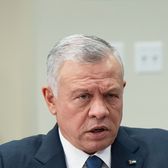
[T]he message the Arab world is hearing is loud and clear: Palestinian lives matter less than Israeli ones.[22]
Abdullah II bin Al-Hussein•Jordanian King, Cairo Peace Summit, October 21, 2023
In response, Western governments have tried to highlight the differences between Russia’s and Israel’s wars. They argue that, unlike Russia’s war, Israel’s military campaign is an act of self-defense. The country was brutally attacked, with approximately 1,200 of its people killed and around 250 people abducted by Hamas.[23] They also argue that in Gaza, civilian casualties are hard to fully avoid, given Hamas’s deliberate use of civilians as human shields, but the same is not true in Ukraine.[24] Last but not least, the United States and European governments have pointed out that they have been urging the Israeli government to mitigate civilian harm and allow for more aid to flow into Gaza.[25] They also note that they have provided substantive humanitarian support for the Palestinian people. In that vein, John Kirby, the White House National Security Communications Advisor, rhetorically asked his audience to name him “one more nation, any other nation that’s doing as much as the United States to alleviate the pain and suffering of the people of Gaza.”[26]
However, this has not changed the perception among many governments in the world that the West’s efforts to protect Palestinian lives pale in comparison to its efforts to protect the lives of Israelis or Ukrainians.[27] “We are now in a situation where the identity of the aggressor or the identity of the victim determines how the world responds,” argued Udo Jude Ilo, the then-Executive Director of Civilians in Conflict.[28] Moreover, Western states’ responses to the International Criminal Court (ICC) decision to simultaneously seek arrest warrants for Israeli officials and Hamas leaders has further compounded accusations of hypocrisy. They included threats of retaliation against the ICC as well as criticism that the warrant would create a false moral equivalence between the actions of terrorists and those of a democratic state.[29] This has reinforced the perception of “a sense of democratic moral superiority” in the West, meaning that different crimes are not judged against the same legal standard but assessed according to whether the perpetrator is a democratic ally or an autocratic foe.[30]
This hardly implies that those who accuse the West of hypocrisy are without sin and do not employ double standards themselves. Arab states routinely chide Israel for its treatment of the Palestinian people. When it comes to China’s actions toward Uyghur Muslims, however, these governments are largely silent.[31] Moreover, despite their legitimate criticism of European states for failing to come to terms with their imperialist and colonialist legacies, many leaders in Africa and elsewhere have refused to recognize the colonial nature of Russia’s war against Ukraine.[32] “[H]ypocrisy,” as one observer has put it, “is fairly evenly distributed in the North and the South.”[33] But the impression that Western states have both benefitted disproportionately from the existing international order and have often portrayed themselves as champions of its principles and rules has regularly invited particularly close scrutiny of their behavior.
For many in the Global South, it is not only recent events that sit oddly with the ramped up Western rhetoric about championing universal principles and rules. They also believe that Western states’ commitments to rules and principles meant to benefit all are bound to decrease due to growing geopolitical competition.[34] What was always a universality full of caveats, they fear, is bound to be restricted even further. Governments across the world are well aware that in their efforts to contain Russian and Chinese revisionism, the United States, with its European partners, increasingly feels the need to abandon some of the principles of the rules-based international order and “operat[e] outside the very institutions and norms it helped create.”[35] To them, the best example of this is the roll-back of the rules-based trading order.
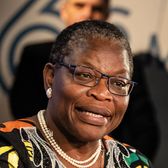
The West were once unrepentant champions of free trade and rightly so as it unlocks higher economic growth and development for countries. Unfortunately, the same West increasingly walks away from free trade to erect walls of protectionism to the surprise of Africans.
Obiageli Ezekwesili•Chair of the Board of Women Political Leaders and former Nigerian Minister of Education, Munich Strategy Retreat Bellagio, June 17, 2024
The fact that Western states, who have long sold “a set of doctrines known as neoliberal economics”[36] as the only convincing path to growth, are now chipping away at the rules of open trade has not gone unnoticed in many parts of the world.[37] Western governments, faced with economic coercion by autocratic states, may have good reasons to rethink the idea of economic openness and invest in their own resilience.[38] But seen through the eyes of leaders whose countries have struggled under neoliberal doctrines, it is highly inconsistent that “rich countries and regions,” as the special economic advisor to Brazil’s president has described it, are “now openly espousing and defending industrial policy.”[39] To these governments, the United States’ Inflation Reduction Act and the EU’s Net Zero Industry Act must look like obvious double standards. The same is true for US actions that have crippled the appellate body of the World Trade Organization and US and European efforts to restrict the pursuit of mutually beneficial trade to politically like-minded states.[40] Many leaders in the Global South feel that Western states have not satisfactorily explained how they will square these policies with their promise to grow the proverbial pie for the benefit of all.[41] After all, the International Monetary Fund and other international organizations have pointed to the substantial risks that growing trade fragmentation poses for global poverty reduction.[42] And states with insufficient resources to effectively compete have good reason to fear that the subsidy race that is already underway between Western states and China will trap them at the lower end of global value chains.[43]
In short, governments in the Global South do not just worry that, with growing geopolitical competition, Western states may become more inconsistent; they fear that the existing divide is bound to grow further, with the transatlantic partners continuing to prioritize a stable order while countries of the Global South seek more justice and inclusion.
Revisionism: Rules-Debased Order
Some governments accusing the transatlantic partners of double standards are not primarily concerned with the future of the rules-based international order; rather, they seek to eliminate international rules and principles, particular those with a liberal thrust. This group most prominently includes China, Russia, and some of their autocratic peers. The notion of rules and principles that can constrain powerful actors’ behavior clashes with their desire for “unconstrained power politics that allow big countries to carve out regional spheres of influence.”[44] But they are particularly hostile to standards that prescribe how governments must treat their own citizens, especially the principles of liberal democracy and rules enshrined in human rights law. As they see it, these pose a threat to the stability and security of their illiberal regimes.[45] For Beijing and Moscow, accusations of Western double standards are a useful tool in the growing systemic competition with the West and especially with the United States: They serve the dual purpose of eroding the West’s normative power while also undermining the idea of liberal universal rules and principles as such, which both regimes see as embedding US hegemony and as standing in the way of “a world safe for autocracy.”[46]
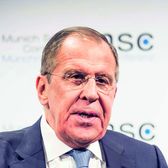
They are trying to force the world to play by their notorious and self-serving 'rules'.[47]
Sergey Lavrov•Russian Foreign Minister, UN General Assembly, September 23, 2023
Accusing Western countries of hypocrisy helps China and Russia divert attention from their own violations of international rules. In this vein, China has recently sought to downplay its treatment of Xinjiang’s Uyghur Muslims, which a 2022 report of the Office of the United Nations High Commissioner for Human Rights has argued “may constitute international crimes, in particular crimes against humanity.”[48] Chinese Foreign Ministry Spokesperson Wang Wenbin has argued that although “[i]t’s millions of Muslims in Gaza not Muslims in Xinjiang that suffer from hunger, deportation, and killing,” the US is criticizing China for its treatment of Muslim Uyghurs rather than helping to protect Palestinian Muslims.[49] Similarly, when Putin declared war on Ukraine on February 24, 2022, he underplayed his own violation of the norm against territorial conquest by listing past instances of alleged Western “disregard for international law,” among them the NATO airstrikes on Belgrade and the US invasion of Iraq.[50]
Accusations of double standards have also helped Beijing and Moscow simultaneously tarnish the West’s image among a global audience while also sowing divisions within Western societies. In this vein, Chinese-controlled media have eagerly reported on arrests of pro-Palestinian protesters on the campuses of various American universities. They have portrayed this as pointing to double standards in Washington’s approach to free speech at home and in the world.[51]
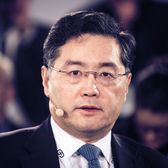
We […] reject the imposition of a country’s own values on others, and oppose the so-called superior model of ‘democracy and freedom’ and the self-important ‘universal values’.[52]
Qin Gang•then-State Councilor and Chinese Foreign Minister, China Development Forum 2023, March 27, 2023
Most importantly, in making these accusations of double standards, China and Russia have taken aim at international standards themselves. Xi Jingping, with Vladimir Putin’s support, is trying to establish a world “where liberal values carry no merit or moral freight in their own right.”[53] Moreover, both China and Russia are working hard to undermine other states’ commitment to universalist ideas. They have thus formulated a narrative that delegitimizes universal rules as a Western imposition and inseparably links the notion of universal principles to Western domination and exceptionalism. According to this narrative, the rules and principles embedded in the international order are not universal but Western-made and imposed on the rest of the world. Chinese officials thus regularly speak of the “so-called” rules-based order and of “so-called” universal values.[54] Moreover, so they claim, these rules serve as tools of Western domination because they only benefit the West and because Western states apply them selectively in pursuit of parochial aims.[55]
In this way, China and Russia are trying to “cleanse” the international order of rules and norms that nondemocratic countries struggle to comply with. In the place of these rules, China in particular has spoken of the “common values of humanity,”[56] the idea of “absolute sovereignty”[57] – that is, noninterference mostly in its own domestic affairs – and respect for “civilizational diversity.”[58] These notions, all of which contradict the idea of universal liberal norms that can constrain governments’ behavior, are also core to the series of global initiatives launched by China over the past several years, among them the Global Civilization Initiative introduced in March 2023.[59] The concepts of “common values” and “civilizational diversity” imply that different societies may interpret values differently. What China and Russia are promoting is thus what the EU High Representative Josep Borrell has called “a form of political culturalism, whereby every society would be entitled to have its own values”[60] and few obligations would be binding on all states.
As such, China’s and Russia’s propaganda around Western double standards and international rules is self-serving, underpinning what German Chancellor Olaf Scholz has described as “authoritarian and imperialistic ambitions.”[61] Yet, both states have sought to ensure that their accusations resonate with governments in other parts of the world: with middle powers that see their pursuit of a greater role on the international stage thwarted by a West that clings to its privileges, with governments that are already resentful that the international order has failed to “grow the pie for the benefit of all,”[62] and with leaders that feel Western states have insufficiently reflected on their colonial pasts and have often lectured them rather than treating them with respect.[63]
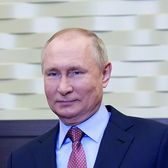
[A] truly multipolar world order is evolving and the era of domination by one country or a group of countries is coming to an end. However, those who are used to their exceptionalism and monopoly in global affairs are resisting this.[64]
Vladimir Putin•Russian President, Russia-Africa Summit, July 28, 2023
People’s hopes and concerns associated with multipolarity
China and Russia thus present what they call Western rules and Western exceptionalism as obstacles to the rise of “a truly multipolar and fairer world.”[65] They argue that the West, and especially the US, is using its exceptionalism to prevent “the rise of new players on the international stage”[66] and stall the emergence of an order that provides more inclusive global benefits.[67] They claim that instead, Washington is “stok[ing] ideological confrontation in the name of the so-called rules-based order” and is fueling Cold War dynamics that further entrench existing inequalities.[68] In doing so, Russia and China are exploiting political leaders’ aspirations for a multipolar world.[69] As the survey data reveals, they are also tapping into the hopes of many societies across the world (Figure 3). In all countries surveyed, more respondents feel hope when thinking about a multipolar order than feel concern. This is most strongly so in Pakistan and least so in Turkey.
Share of people who say the respective actor treats countries like theirs with respect minus share who say the respective actor does not
Moreover, Russia and China have depicted Western double standards as motivated by neocolonial or chauvinist instincts.[70] For instance, Chinese- controlled media have exploited reports of Black people being hindered from leaving Ukraine, condemning the “xenophobic treatment faced by non-white people” that are fleeing the war.[71] Here too, China’s and Russia’s propaganda is exploiting grievances and sentiments that are not only evident among political elites. Indeed, Moscow and Beijing can also tap into societal feelings of being treated with comparatively little respect, especially by the US (Figure 4). When asked about Russia, China, European countries, and the US and whether people think these actors treat countries like theirs with respect, in five out of nine countries surveyed, the US scored worst. Overall, the share of people who felt that Washington treats their country with respect only exceeded those who do not by 8 percent. For China, by contrast, the share is 22 percent. In Mexico, Pakistan, and Turkey, substantially more people feel their country is treated disrespectfully by the US than feel their country is treated with respect. Otherwise, however, the survey data paints a mixed picture. It reveals that Russia scored comparatively badly compared to European countries and China, and that people in Brazil and India feel their country is treated with less respect by Beijing than by Washington. The data also shows that, overall, societies might not be susceptible to Chinese and Russian criticism of an indiscriminately hypocritical “West.” After all, Europe scored comparatively well in all societies surveyed, with negative views only exceeding positive ones in Turkey.
Overall, the world China and Russia promote is not a world of greater normative consistency. It is an “order characterized by massive diversity”[72] with “no room for supranational constructs such as universal values.”[73]
The incentives for Beijing and Moscow to ramp up this type of rhetoric are growing as geopolitical competition is picking up steam.
Transactionalism: A-Principled Approach
Autocrats are not the only actors who use references to Western double standards to justify practices that challenge international rules. Other actors, often called “transactional”[74] states, are not necessarily at war with international rules and principles themselves. Yet, for them, Western inconsistencies present a welcome excuse to justify a decidedly unprincipled foreign policy approach. This approach does not aim to achieve greater global consistency in the application of international principles and includes no commitment to defending international rules. For transactional governments, the guiding principle is whether a given foreign policy decision furthers their country’s narrow national interests.[75] Moreover, the core tenet for engaging in partnerships is not shared values but the immediate benefits cooperation provides.[76]
Transactional governments implicitly present their own interest-based, “explicitly amoral” approach as the more honest alternative to Western hypocrisy.[77] They argue that the claims by Western states that they are guided by overarching principles has never held the water. When push came to shove, the West has often acted in narrowly self-interested ways and has been unwilling to sacrifice core material interests in defense of general rules and principles like human rights, democracy, or free trade. To these actors, the conduct of the US during the presidency of Donald Trump, who was well-known for his “deal-making inclinations,”[78] illustrates this particularly clearly. Unlike the West, so these governments suggest, they “are not pretending” to pursue anything larger than their own parochial aims.[79] Moreover, many of them perceive Western countries’ communication about international rules and principles as “preachy.”[80] This, in turn, makes it easier for them to argue that their pragmatic pursuit of unilateral interests is not only much more honest but is also more respectful vis-à-vis other countries in the world.

Do we have multiple options? The answer is yes. Is that a problem? Why should it be a problem? If I’m smart enough to have multiple options you should be admiring me, you shouldn’t be criticizing me.[81]
Subrahmanyam Jaishankar•Indian External Affairs Minister, Munich Security Conference, February 17, 2024
People’s views on Russia’s compliance with international rules
For Western observers, many countries’ reluctance to sacrifice their economic ties with Moscow after its full-scale invasion of Ukraine is a clear example of transactionalism.[82] In fact, The Economist has defined all countries included in this survey as part of the group of “transactional 25 (t25)” due to their unwillingness to impose costs on Russia for its war of aggression and/or their hesitancy in picking a side in the growing Sino-American competition.[83] Some of these states, the authors argue, have not only refused to sanction Moscow but have used the standoff between Russia and the West to “make expedient deals.”[84] According to reporting by The Washington Post, Russia’s war in Ukraine “has been funded in significant part by Indian purchases of Russian oil products.”[85] Similarly, Brazil’s purchases of oil products from Russia have reportedly surged against the backdrop of Moscow’s ongoing war.[86] Interestingly enough, these governments’ fence-sitting on the war against Ukraine apparently does not mean that their populations do not hold highly critical views of Russian rule violations or a general desire to see rule transgressions criticized. In fact, there was no country surveyed for this study in which more than a third of respondents thought that Russia was generally abiding by international rules and principles (Figure 5). Moreover, absolute majorities in all countries surveyed describe a good political leader as one who criticizes partners or allies when their foreign policies deviate from international principles and rules (Figure 6).
People’s views on criticizing allies or partners for deviating from international rules
Without a doubt, transactionalism is an effective response to the “systemic inequalities that persist in global politics”[87] and a remedy for institutionalized double standards. For countries that see little chance of overcoming the inequalities that systematically disempower them – especially a lack of voice and representation in international organizations – an opportunistic approach is a promising way to level the playing field.[88] After all, leaders can argue, if the prospects for better representation within international institutions are dim, how else can countries ensure that their interests are being taken into account than by cutting transactional deals?
At the same time, their criticism of Western double standards and efforts to level the playing field are often explicitly self-serving.[89] Little of it seems geared at advancing compliance with global rules and norms and thus at improving the lot of a larger group of states. The contrast with the nonaligned group of the Cold War era could not be starker: At that time, nonaligned states coalesced around values, and their criticism of the West, including accusations of double standards, was motivated by a broader understanding of the common good. This vision was defined by a pushback against capitalist and colonialist practices, a shared quest for economic equality and self-determination, and a desire to end racial discrimination.[90] It generated new conceptions of more inclusive rules, for instance, those embedded in the New International Economic Order.[91] Such conceptions are largely absent from the discourse of today’s transactional governments. “[I]deological solidarity,” some argue, barely exists.[92] As such, criticism of Western double standards does not come with a values-based alternative.
Although this transactional approach differs from the revisionist approach – it is not geared at undermining international rules and principles per se – it nonetheless strongly challenges the very idea of universal standards and the notion that countries’ foreign policies should be principled. Instead of strengthening the rules of the road and pushing countries into greater overall consistency, transactionalist governments downplay the role of principles. As such, there is reason to fear that transactionalism strengthens revisionists’ hands by feeding into their “de-universalization” agenda. Moreover, as great power competition picks up steam, transactional tendencies are bound to grow – and with them accusations of double standards as a justification for this unprincipled approach.
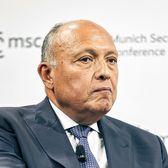
The Global South is looking very carefully at the progression of this conflict [in Gaza] and is making comparisons. And I believe that it is losing confidence in the viability of the values that have been projected, if you want to say, by the Global North.[93]
Sameh Shoukry•then-Foreign Minister of Egypt, Atlantic Council, December 8, 2023
Dilemma: Ruling Out the Order’s Demise
As accusations of double standards are mounting from all sides, the West faces a growing dilemma. On the one hand, the consequences of ignoring accusations of double standards are undoubtedly growing. Such a policy risks undermining residual beliefs in the validity of universally applicable principles, fueling what French President Emmanuel Macron has described as “a new cynicism that is tearing down the global order.”[94] It also jeopardizes the cooperation necessary to defend and strengthen the rules of the game. On the other hand, Western states fear that a more self-critical engagement with their own inconsistencies may well strengthen the opponents of international rules. Given how well the rules and principles enshrined in the order have served Western interests in the past, neither growing normative disillusionment nor ramped-up rule revisionism is in Western countries’ interest.
Western inconsistencies and a rhetoric that denies or glosses over them are feeding right into revisionist countries’ propaganda that universally applicable rules and principles are a Western chimera. But they are also playing into the hands of governments who try to downplay the relevance of principles. These leaders only have to point to instances where Western states failed to stick to prior normative commitments to argue that short-term self-interestedness is the rule and not the exception among states.[95] Hence, if Western states fail to “regularly promote and claim fealty” to the order’s core principles, they risk undermining perceptions of the legitimacy of these standards elsewhere in the world.[96] This is particularly worrisome at a time when the West’s relative power is declining and both the perceived legitimacy of the standards in question and other actors’ support is becoming more pertinent in ensuring widespread rule compliance.
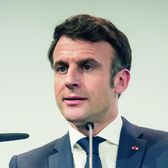
I am struck by how much we have lost the trust of the Global South.[97]
Emmanuel Macron•French President, Munich Security Conference, February 18, 2023
People’s preferences for bilateral over multilateral cooperation
Perceptions of double standards are also fueling a general climate of distrust that is undermining international cooperation. Double standards are clearly not the only reason for the current malaise in the multilateral cooperation needed for global problem-solving and for developing “standards, rules and norms that are of benefit to all.”[98] But the loss of trust that accompanies perceptions of hypocrisy clearly amplifies the political divides that, according to UN Secretary-General Antonio Guterres, are already “poisoning every area of global cooperation” and are locking the multilateral system into “colossal global dysfunction.”[99] As the survey data shows, support for investments in multilateral cooperation and international institutions is already dismally low in all societies surveyed (Figure 7). According to UN observers, perceptions of double standards around Gaza have driven “a growing wedge” between Western states and some countries in the Global South and are thus bound to hamper cooperation on other important issues.[100]
While the stakes for ignoring accusations of hypocrisy are growing, many Western states – first and foremost the US – have found it difficult to square the challenge of debating inconsistencies more openly and reducing them where possible with yet another crucial task: containing actors who have no interest in a more consistent West but who seek to destroy the very standards against which governments’ behavior is judged.
A more honest conversation about their inconsistencies, many Western countries fear, will only strengthen their opponents. Above all, it will provide revisionist states with yet more ammunition in their efforts to target the West. Moreover, it may shift the international community’s attention away from the much greater threat to universal rules and principles that is posed by Moscow and Beijing. These concerns have, unfortunately, resulted in a style of communication that international observers describe as tone-deaf.[101] US Vice President Kamala Harris’s remarks at the Munich Security Conference 2023 are a case in point. In response to Russian war crimes in Ukraine, she issued a powerful plea to conference participants to “renew our commitment to accountability.”[102] Yet, Harris brushed over the fact that this would be much easier if the US were more supportive of the primary international institution created to pursue individuals for war crimes.[103] Instead, however, Washington refuses to recognize the jurisdiction of the ICC.

In general, as we’re looking at human rights and the condition of human rights around the world, we apply the same standard to everyone. That doesn’t change whether the country is an adversary, a competitor, a friend, or an ally.[104]
Antony Blinken•US Secretary of State, news conference, April 22, 2024
For many Western states, it is difficult to reconcile the impression that they are standing “at an inflection point”[105] with a more self-critical discourse and with a commitment to improve their practice. There are many cases in which Western states’ fears that they will strengthen the rule revisionists – or weaken the coalition in defense of international rules – stand in the way of correcting double standards or addressing systemic inequalities. Protracted efforts to reform international organizations like the World Bank and the International Monetary Fund are a case in point.[106] Widespread perceptions of institutionalized inequality could be somewhat altered by increasing the voting share held by emerging and developing economies.Yet, because it would also see Beijing gain more influence, the US and European countries have hesitated to do so.[107] Moreover, as suggested by muted criticism of Israel’s ongoing military campaign, many Western states find the need to close ranks among governments that generally support the international order’s principles difficult to square with honest criticism of allies and partners when they deviate from agree-upon rules.[108]
In short, the pressure exerted on Western democracies by growing geopolitical competition has raised the stakes when it comes to Western inconsistencies. Yet, it has also put some obstacles in the way of Western countries that want to change course.
Reducing Standard Deviation
The US and European governments cannot ignore this dilemma, which is only bound to grow as geopolitical competition intensifies. Their response should incorporate three elements. First, Western states need to make greater efforts to become more consistent in how they apply the rules and principles of the international order. In that regard, efforts to reduce the type of inconsistencies that touch upon the most sensitive areas of international law or that conflict with longstanding demands for greater global justice and inclusion should be a top priority. Second, Western countries need to be more honest when their capacity to be consistent hits its limits. This also includes abandoning the black-and-white language that often characterizes their communication about international standards. Yet, third, the US and European countries also need to firmly push back against what is often implied in other leaders’ criticisms: that an order characterized by double standards is no longer preferable to an order without standards at all.
If Western states want to convince the broader international community that revisionist forces and transactional ideas threaten international rules and principles, they need to make greater efforts to reduce the deficits in their own application of international rules. In improving their consistency, they should put respect for what some consider the “basis of fundamental rights,”[109] namely the dignity of all human life, front and center. As responses to Israel’s war in Gaza reveal,[110] the strongest catalyst of cynicism about international principles seems to be the perception that countries are not heeding “the most fundamental standards”[111] of the international order, including the protection of civilians in conflict and of basic human rights.
Moreover, Western states should avoid inconsistencies that are seen as systematically disempowering others – instances where the failure to “walk the talk” of championing international standards reduces other countries’ opportunities. Examples include industrial policies that disadvantage states without the resources to effectively compete. Another example would involve trading rules that condemn some countries “to being commodity producers, reserving the higher value-added production” for countries that are more economically advanced.[112] These inconsistencies amplify the impression that Western countries are not committed to an international order whose principles are truly meant to benefit all.

Many people want to pull us into a conversation as to whether we are facing East or West. We are neither facing West nor East, we are facing forward because that is where the opportunities are.[113]
William Ruto•Kenyan President, CNN, May 25, 2024
Nothing would better disprove China’s and Russia’s narrative that international rules and principles are tools for “maintaining Western dominance,”[114] than a demonstration that countries can be politically and economically empowered in the framework of existing rules. In the economic realm, this could include strengthening nondiscriminatory trade by better integrating Global South economies into diversified global supply chains. Additionally, Western states could work to ensure that more developing countries “can benefit from better trade terms within the framework set by the US Inflation Reduction Act” and Europe’s Green Deal Industrial Plan.[115]
Making Honesty the Rule
There is also a need for greater honesty when inconsistency is hard to avoid. Rather than omitting inconsistencies or pretending to be consistent when they clearly are not, Western states should acknowledge such situations, be transparent about the normative trade-offs they face, and explain how they seek to ensure that inconsistencies remain the exception. After all, full consistency is neither attainable nor always desirable. Policies or partners always need to be assessed “against the plausible possibilities, not against the utopian ideal.”[116] The initial reluctance of some European states to break with the Sahel’s military juntas after they seized power in a series of military coups was surely at odds with European countries’ stated commitment to advancing democratic rule. It was, however, seen as the only way to prevent Russian mercenaries from stepping into the breach – something that has now happened. Given these actors’ record of human rights violations, more trouble is likely in the region.[117]
A more honest conversation will also require Western states to discard stylized binary narratives, which are especially prevalent in Washington and imply an ideal-type distinction between morally pure democracies protecting international rules and evil autocracies aiming to undo them.[118] As previously highlighted, many countries in the Global South do not see the world as black and white. That, however, does not suggest that they are not open to seeing it in shades of gray. In fact, the survey data shows that although respondents in the societies surveyed may not view democracies as morally pure, they still acknowledge relevant differences in the rule-abiding behavior of democratic and autocratic states (Figure 8).
Rather than drawing yet more attention to Western countries’ sins, a discourse that shifts away from black-and-white narratives and instead highlights relevant shades of gray may even play to Western strengths. One such shade of gray worth highlighting is the fact that, unlike autocratic systems like those in China and Russia, the political systems of democratic states allow for the types of discourse and mechanisms needed for self-correction. Western states’ abilities to admit and correct flaws could well be turned into an advantage in the fight for global credibility, especially when they are compared with countries “that do not even recognize the concept of sin.”[119]
Doubling Down on Standards
People’s views on democracies’ and autocracies’ compliance with international rules
Taking double standards accusations more seriously, however, does not stop at improving Western states’ own records of consistency and at adopting a more honest approach about their limits. These states also need to push back against the growing tendency to merge criticism of an inconsistent rule application with criticism of the rules of the order as such.
To this end, leaders need to better flag the risks that arise when existing standards are challenged and questioned without the specification of a set of clear alternatives – of principles that reflect shared interests among countries and help stabilize relations between states. The rules and principles of the order may not have been implemented consistently, but without them, war and conflict would likely be rampant.[120] Many crises and too much human suffering have been ignored in the framework of the rules-based international order.

Freedom, equality, the rule of law, and the dignity of every human being are values not exclusive to what has been traditionally understood as the West.[121]
Olaf Scholz•German Chancellor, Foreign Affairs, January/February 2023
People’s views on which actor does the most to ensure the inter- national order benefits weaker/developing states
However, in a transactional world, many more crises would have fallen through the cracks. And while there is no doubt that Western states are guilty of double standards, many of their foreign policies would not have materialized had they been guided by naked interests alone.[122] These policies include the provision of global public goods like freedom of navigation just as much as investments in international institutions aimed at addressing shared global threats. They range from facilitating and financing humanitarian interventions to sanctioning violations of fundamental human rights. The survey data suggests that people in many parts of the world actually share this perception. Respondents seem to believe that, compared to other countries in the world, Western states, the US in particular, have often defined their interests quite broadly. When they were asked whether China, European states, Russia, the US, or an unspecified other country does the most to ensure that the international order benefits weaker states, respondents particularly highlighted the US (Figure 9). The only countries in which pluralities did not name the US or European states were Pakistan, Saudi Arabia, and Turkey. In Pakistan, China was mentioned most often, while in Saudi Arabia and Turkey, people had another country in mind.
People’s views on whose values and needs international rules represent
In a world devoid of standards, where everything is treated as a transaction, policies geared at the well-being of others will presumably be the exception. Western states need to engage the large number of governments who would suffer the most in such a scenario but who seem increasingly “dissociated from the present order.”[123] It is not always clear whether these leaders’ criticism of Western double standards and of the rules-based order as such is driven by an inconsistent implementation of international principles or by dissatisfaction with the rules and principles themselves.[124] Their discourse thus feeds into Chinese and Russian propaganda of “so-called” universal rules. The US and European governments should oblige their counterparts in other parts of the world to be more explicit about the changes they want. Is their criticism born out of a desire to see international rules improved or does it reflect a desire to see universalism undone? While many leaders are vague in this regard, the views of their populations are surprisingly clear. As the survey data shows, few people seem convinced of China’s and Russia’s claim that universal rules are actually Western. In all countries surveyed, absolute majorities think that international rules and principles represent the values and needs of most countries in the world rather than only those of the West (Figure 10). When asked whether the current international rules represent the values and needs of their country, the answers are not as pronounced (Figure 11). Yet, in all societies surveyed, those who agree clearly outnumber those who disagree – most strongly in India and least so in Turkey.
People’s views on whether the current international rules represent the values and needs of their country
However, if they want countries of the Global South to take greater agency in defending and improving existing international standards, Western states must be prepared to be judged by these same standards when violating them. They even need to encourage it. An approach that chides rather than affirms countries for “showing more confidence and initiative”[125] in implementing the principles of the order obstructs rather than motivates a more widely dispersed sense of ownership. Observers have pointed out that the genocide case brought by South Africa against Israel before the International Court of Justice was in many ways politically motivated and inconsistent.[126] But with their dismissive reactions, Western states have squandered an opportunity to strengthen the perceived universal validity of international rules, the institutions aimed at defending them, and non-Western ownership in the rules-based order as such.
The US and European countries have no choice but to take widespread accusations of hypocrisy more seriously. If they do not adjust their behavior and discourse, cynicism about the rules-based order will grow. If they do this well, however, they could turn the debate about double standards into a much more constructive one – a debate that may help fortify beliefs in the value of universally applicable rules. As the survey data suggests, in the court of public opinion, this battle is not yet lost.
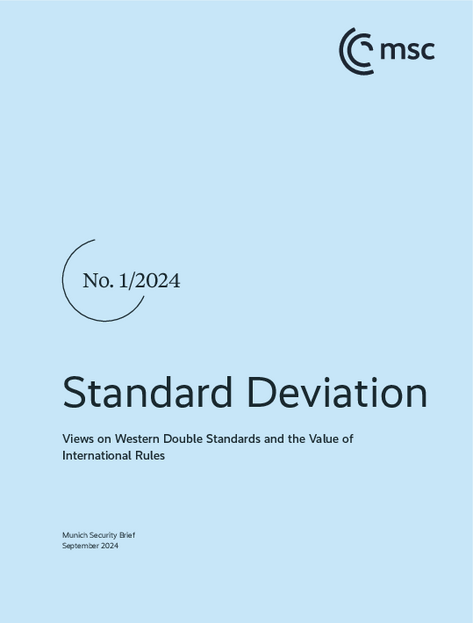
Standard Deviation: Views on Western Double Standards and the Value of International Rules
Bibliographic data: Sophie Eisentraut, “Standard Deviation: Views on Western Double Standards and the Value of International Rules,” Munich: Munich Security Conference, Munich Security Brief 1, September 2024, https://doi.org/10.47342/LDPB2956.
Download PDF 4 MB- [1] “Jaishankar’s Europe Remark Echoes in German Chancellor’s Statement in Munich,” The Hindu, February 20, 2023.
- [2] “Indonesia’s President-elect Accuses the West of Double Standards,” The Economist, April 26, 2024.
- [3] United Nations System Chief Executives Board for Coordination, “Leaving No One Behind: Equality and Non-Discrimination at the Heart of Sustainable Development,” New York, 2017, perma.cc/XT93-5GBM.
- [4] Josep Borrell, “United Kingdom: Speech by High Representative/Vice-President Josep Borrell at Oxford University About the World Confronted by Wars,” Oxford: Oxford University, May 3, 2024, perma.cc/8GYL-2BGL.
- [5] See Thomas M. Franck, “Of Gnats and Camels: Is There a Double Standard at the United Nations?,” American Journal of International Law 78:4 (1984), 811–833.
- [6] The UK’s reluctance sits oddly with international court rulings that the UK has no sovereignty over the area. These decisions include a 2021 ruling by a special chamber of the International Tribunal for the Law of the Sea and a 2019 advisory opinion issued by the International Court of Justice. See Patrick Wintour, “UN Court Rejects UK Claim to Chagos Islands in Favour of Mauritius,” The Guardian, January 28, 2021; Owen Bowcott, “UN Court Rejects UK’s Claim of Sovereignty Over Chagos Islands,” The Guardian, February 25, 2019. It also does not help that the US and several European countries voted against or abstained in a UN General Assembly vote “demanding that the United Kingdom unconditionally withdraw” from the Chagos Archipelago. See United Nations, “General Assembly Welcomes International Court of Justice Opinion on Chagos Archipelago, Adopts Text Calling for Mauritius’ Complete Decolonization,” Press Release, May 22, 2019, perma.cc/FGQ8-ZMS2; Owen Bowcott and Julian Borger, “UK Suffers Crushing Defeat in UN Vote on Chagos Islands,” The Guardian, May 22, 2019.
- [7] Anthony Faiola et al., “With Europe’s Support, North African Nations Push Migrants to the Desert,” The Washington Post, May 20, 2024; Rosa Balfour, Lizza Bomassi, and Marta Martinelli, “The Southern Mirror: Reflections on Europe From the Global South,” Brussels: Carnegie Europe, June 2022, perma.cc/T4JV-2SVX.
- [8] Alexander Winning, “South Africa Warns of ‘Vaccine Apartheid’ if Rich Countries Hog Shots,” Reuters Media, May 10, 2021; also see Sophie Eisentraut et al., “Polypandemic: Special Edition of the Munich Security Report,” Munich: Munich Security Conference, November 2020, doi.org/10.47342/CJAO3231.
- [9] Bobo Lo, “Global Order in the Shadow of the Coronavirus: China, Russia and the West,” Sydney: Lowy Institute, July 28, 2024, perma.cc/U4QK-5E7V.
- [10] For more details, please see “Survey Methodology.”
- [11] Comfort Ero, “The Trouble With ‘the Global South’: What the West Gets Wrong About the Rest,” Foreign Affairs, April 1, 2024.
- [12] Joseph R. Biden, “President Biden: What America Will and Will Not Do in Ukraine,” The New York Times, May 31, 2022.
- [13] Olaf Scholz, “The Global Zeitenwende: How to Avoid a New Cold War in a Multipolar Era,” Foreign Affairs, December 5, 2022; Annalena Baerbock, “Tweet,”: X, Nov 4, 2022, 1:09 PM, perma.cc/D56E-JGES.
- [14] The White House, “National Security Strategy,” Washington, DC, October 2022, perma.cc/7RPC-7HZJ.
- [15] Antony J. Blinken, “The Administration’s Approach to the People’s Republic of China,” Washington, DC: The George Washington University, May 26, 2022, perma.cc/X8GH-FPBP.
- [16] Michael Young, “The Mirage of Liberal Internationalism,” Riad El Solh: Malcolm H. Kerr Carnegie Middle East Center, Diwan, April 11, 2022, perma.cc/8YYX-KS29; also see Arwa Damon, “The Gross Hypocrisy of the West’s Refugee Response,” CNN, March 8, 2022; Enes T. Ersen, “Ukraine-Russia War Shows EU’s Hypocritical Stance on Refugees,” Anadolu Agency, September 14, 2024.
- [17] Beth van Schaack, “Remarks to the Helsinki Commission: ‘Holding Russia Accountable for War Crimes Against Ukraine: Lessons From Nuremberg’,” Nuremberg: Helsinki Commission and Nuremberg Academy, February 20, 2024, perma.cc/U8UQ-2ZNK; also see European External Action Service, “Ensuring Accountability for War Crimes,” Brussels, January 25, 2023, perma.cc/Q3QC-HDYL.
- [18] Ministry of Foreign Affairs of the Republic of Türkiye, “Statement of the Spokesperson of the Ministry of Foreign Affairs, Mr. Hami Aksoy, in Response to a Question Regarding the Statement of the International Criminal Court Prosecutor,” Ankara: Ministry of Foreign Affairs of the Republic of Türkiye, December 21, 2019, perma.cc/8UBL-Z55X.
- [19] OCHA, “Humanitarian Situation Update #194 Gaza Strip,” New York, July 22, 2024, perma.cc/ZC2X-QE9V.
- [20] The Biden Administration Must Assess Israel’s Conduct-and Hold it to Account,” Foreign Affairs, February 12, 2024; also see H. A. Hellyer, “How Joe Biden Sabotaged the ‘Rules-Based Order’,” Foreign Policy, May 10, 2024.
- [21] Massimo Calabresi, “‘We are the World Power.’ How Joe Biden Leads,” Time, June 4, 2024; United Nations Human Rights Council, “Report of the Independent International Commission of Inquiry on the Occupied Palestinian Territory, Including East Jerusalem, and Israel,” New York, May 27, 2024, perma.cc/98D8-UZYS.
- [22] “Remarks by His Majesty King Abdullah II at the Cairo Summit for Peace,” Cairo: Cairo Summit for Peace, October 21, 2023, perma.cc/4T82-HB5K.
- [23] United Nations Human Rights Council, “Report of the Independent International Commission of Inquiry on the Occupied Palestinian Territory, Including East Jerusalem, and Israel.”
- [24] Summer Said and Rory Jones, “Gaza Chief’s Brutal Calculation: Civilian Bloodshed Will Help Hamas,” The Wall Street Journal, June 10, 2024.
- [25] Oona A. Hathaway, “Don’t Go to War With the ICC: America Can Help Israel Without Attacking the Court,” Foreign Affairs, May 25, 2024.
- [26] Karine Jean-Pierre and John Kirby, “Press Briefing by Press Secretary Karine Jean-Pierre and NSC Coordinator for Strategic Communications John Kirby, December 7, 2023,” Washington, DC: The White House, December 7, 2023, perma.cc/WJR2-RQXM.
- [27] Francesco Collini et al., “Middle East Conflict Tests the Postwar World Order,” Der Spiegel, October 31, 2023.
- [28] Wintour, “Why US Double Standards on Israel and Russia Play Into a Dangerous Game.”
- [29] Mehdi Hasan, “‘You Have Been Warned’: Republican Senators Threaten the ICC Prosecutor Over Possible Israel Arrest Warrants,” Zeteo, May 6, 2024; Petr Fiala, “Tweet,” X, May 20, 2024, 2:26 PM, perma.cc/G98P-HJZZ.
- [30] Charli Carpenter, “Democracies Don’t Get a Pass on War Crimes,” World Politics Review, June 4, 2024.
- [31] Haisam Hassanein, “Arab States Give China a Pass on Uyghur Crackdown,” Washington, DC: The Washington Institute for Near East Policy, PolicyWatch 3169, August 26, 2019, perma.cc/AT2R-LN3D.
- [32] Mark N. Katz, “Why Doesn’t the Global South Sympathize With Ukraine?,” Kyiv Post, July 11, 2024.
- [33] Matias Spektor, interviewed by Jens Glüsing und Bernhard Zand, August 28, 2023.
- [34] Matias Spektor in Mark Leonard, “The World After the West: Matias Spektor on Brazil,” ECFR Podcast, August 2, 2024, perma.cc/V2QA-ZJDQ.
- [35] Elizabeth Economy, “China’s Alternative Order: And What America Should Learn From It,” Foreign Affairs, April 23, 2024
- [36] Joseph E. Stiglitz, “Where Global Governance Went Wrong and How to Fix It,” Foreign Policy, April 28, 2024.
- [37] Sarang Shidore, “Letter: Global South Leery of US Double Standards on Trade,” Financial Times, May 1, 2024.
- [38] Beyond the weaponization of trade by autocratic regimes, there are also other reasons for Western countries’ turn towards industrial policies, including domestic ones.
- [39] Rana Foroohar, “The White House Knows That the Global South Has a Point,” Financial Times, April 23, 2024.
- [40] Tobias Bunde and Sophie Eisentraut, “Introduction: Lose-Lose?,” in: Tobias Bunde/Sophie Eisentraut/Leonard Schütte (eds.), Munich Security Report 2024: Lose-Lose?, Munich: Munich Security Conference, February 2024, 13-25, doi.org/10.47342/BMQK9457, 17.
- [41] See Munich Security Report 2024, Tobias Bunde, Sophie Eisentraut, and Leonard Schütte (eds.), Munich Security Report 2024: Lose-Lose?, Munich: Munich Security Conference.
- [42] Shekhar Aiyar et al., “Geoeconomic Fragmentation and the Future of Multilateralism,” Washington, DC: International Monetary Fund, January 15, 2023, perma.cc/JGL6-CCYE, 13.
- [43] For an example of how the subsidy race is playing out in the field of clean tech, see Julia Hammelehle, “Climate: Heated Atmosphere,” in: Bunde/Eisentraut/Schütte (eds.), Munich Security Report 2024: Lose-Lose?.
- [44] Tobias Bunde and Sophie Eisentraut, “Introduction: Re:vision,” in: Tobias Bunde et al. (eds.), Munich Security Report 2023: Re:vision, Munich: Munich Security Conference, February 2023, 13-37, doi.org/10.47342/ZBJA9198, 17.
- [45] Tanner Larkin, “How China Is Rewriting the Norms of Human Rights,” Lawfare, August 21, 2024.
- [46] Jessica Chen Weiss, “A World Safe for Autocracy? China’s Rise and the Future of Global Politics,” Foreign Affairs, June 11, 2019.
- [47] Sergey Lavrov, “Foreign Minister Sergey Lavrov’s Statement at the General Debate at the 78th Session of the UN General Assembly, New York, September 23, 2023,” New York: UN General Assembly, September 23, 2023, mid.ru/en/foreign_policy/news/1905973/.
- [48] OHCHR, “OHCHR Assessment of Human Rights Concerns in the Xinjiang Uyghur Autonomous Region, People’s Republic of China,” Geneva, August 31, 2022, perma.cc/XTX4-JWC5.
- [49] Ministry of Foreign Affairs of the People’s Republic of China, “Foreign Ministry Spokesperson Wang Wenbin’s Regular Press Conference on March 13, 2024,” Beijing, March 13, 2024, perma.cc/EDQ4-EYU3.
- [50] Vladimir Putin, “Full Text: Putin’s Declaration of War on Ukraine,” The Spectator, February 24, 2022; also see John Dugard, “The Choice Before Us: International Law or a ‘Rules-Based International Order’?,” Leiden Journal of International Law 36:2 (2023), 223–232.
- [51] “Humanitarian Disaster Facilitated by US Deepens Division Within American Society,” Global Times, April 24, 2024.
- [52] Qin Gang, “Forging Ahead on the New Journey Toward a Community With a Shared Future for Mankind,” Beijing: China Development Forum 2023, March 27, 2023, perma.cc/66GV-28Y5.
- [53] Rana Mitter, “China: Revolutionary or Revisionist?,” The Washington Quarterly 45:3 (2022), 7–21.
- [54] The State Council Information Office of the People’s Republic of China, “A Global Community of Shared Future: China’s Proposals and Actions,” Beijing: Ministry of Foreign Affairs of the People’s Republic of China, September 26, 2023, perma.cc/HCD5-QSVL.
- [55] Sergey Lavrov, “Foreign Minister Sergey Lavrov’s Statement and Answers to Media Questions Following the 21th Doha Forum, 10 December 2023,” Moscow: Ministry of Foreign Affairs of the Russian Federation, December 10, 2023, mid.ru/en/maps/ua/1920028/.
- [56] The State Council Information Office of the People’s Republic of China, “A Global Community of Shared Future: China’s Proposals and Actions.”
- [57] Michael Schuman, Jonathan Fulton, and Tuvia Gering, “How Beijing’s Newest Global Initiatives Seek to Remake the World Order,” Washington, DC: Atlantic Council, June 21, 2023, perma.cc/J2Z9-7JQM.
- [58] Zhang Jun, “Remarks by China’s Permanent Representative to the UN Ambassador Zhang Jun at the UN Security Council High-Level Briefing on the Maintenance of International Peace and Security,” New York: United Nations Security Council, June 14, 2023, perma.cc/S5XB-48JR; Vladimir Putin, “Valdai International Discussion Club Meeting,” Moscow: Valdai International Discussion Club, October 5, 2023, en.kremlin.ru/events/president/transcripts/72444.
- [59] Schuman, Fulton, and Gering, “How Beijing’s Newest Global Initiatives Seek to Remake the World Order.”
- [60] Josep Borrell, “Multipolarity Without Multilateralism,” Brussels: European External Action Service, September 24, 2023, perma.cc/Y9FU-KGPA.
- [61] Scholz, “The Global Zeitenwende: How to Avoid a New Cold War in a Multipolar Era.”
- [62] Bunde, Eisentraut, and Schütte, Munich Security Report 2024: Lose-Lose?, 9.
- [63] On perceptions of Western disrespect, see Dino P. Djalal and Michael Sheldrick, “The Global South Is Tired of the West’s Disrespect,” Nikkei Asia, June 16, 2023.
- [64] Vladimir Putin, “Russia–Africa Summit,” Saint Petersburg, July 28, 2023, en.kremlin.ru/events/president/news/71826.
- [65] Lavrov, “Foreign Minister Sergey Lavrov’s Statement at the General Debate at the 78th Session of the UN General Assembly, New York, September 23, 2023.”
- [66] “Decoupling, De-risking Just Political Weapons,” China Daily, July 4, 2023.
- [67] Lavrov, “Foreign Minister Sergey Lavrov’s Statement at the General Debate at the 78th Session of the UN General Assembly, New York, September 23, 2023.”
- [68] The State Council Information Office of the People’s Republic of China, “A Global Community of Shared Future: China’s Proposals and Actions”; also see Bernard Orr, Guy Faulconbridge, and Andrew Osborn, “Putin and Xi Pledge a New Era and Condemn the United States,” Reuters Media, May 17, 2024.
- [69] See, for instance, Oliver Stuenkel, “The New World Order and the Global South,” Oxford Review of Economic Policy 40:2 (2024), 397–98.
- [70] “China’s Message to the Global South,” The Economist, July 6, 2023; Lavrov, “Foreign Minister Sergey Lavrov’s Statement at the General Debate at the 78th Session of the UN General Assembly, New York, September 23, 2023.”
- [71] “Russia-Ukraine Conflict Exposes West’s Double Standards on Humanitarianism,” Global Times, April 7, 2022.
- [72] Shaun Breslin, China Risen? Studying Chinese Global Power, Bristol: Bristol University Press, 2021, 192.
- [73] Lo, “Global Order in the Shadow of the Coronavirus: China, Russia and the West.”
- [74] “How to Survive a Superpower Split,” The Economist, April 11, 2023.
- [75] Cliff Kupchan, “6 Swing States Will Decide the Future of Geopolitics,” Foreign Policy, June 6, 2023; also see Aslı Aydıntaşbaş et al., “Strategic Interdependence: Europe’s New Approach in a World of Middle Powers,” Berlin: ECFR, October 3, 2023, perma.cc/A8FS-SCMF.
- [76] Thorsten Benner and Tobias Scholz, “Für Deutschland ist Indien zu oft ein unverstandener Partner,” Berlin: Global Public Policy Institute, September 11, 2023, perma.cc/4PAP-VFCY.
- [77] Matias Spektor, interviewed by Jens Glüsing und Bernhard Zand.
- [78] Matias Spektor, interviewed by Jens Glüsing und Bernhard Zand.
- [79] Matias Spektor, interviewed by Jens Glüsing und Bernhard Zand; also see Indian External Minister Jaishankar on how his governments has „very openly and honestly” explained their country’s interest in continuing to import Russian oil despite Moscow’s ongoing war against Ukraine: Poulomi Ghosh, “‘They May Not Always Appreciate it But’: Jaishankar on India Buying Russian oil,” Hindustan Times, August 17, 2022.
- [80] Djalal and Sheldrick, “The Global South Is Tired of the West’s Disrespect”; also see Oliver Stuenkel, “Why the Global South Is Accusing America of Hypocrisy,” Foreign Policy, November 2, 2023.
- [81] “Secretary Antony J. Blinken, German Foreign Minister Annalena Baerbock, and Indian External Affairs Minister Subrahmanyam Jaishankar at the Munich Security Conference,” Munich: Munich Security Conference, perma.cc/22YV-APAW.
- [82] “How to Survive a Superpower Split.”
- [83] “How to Survive a Superpower Split.”
- [84] “How to Survive a Superpower Split.”
- [85] Gerry Shih, Mary Ilyushina, and Catherine Belton, “Modi Bear-Hugs Putin in Moscow, Marking Deep Ties Between Russia and India,” The Washington Post, July 9, 2024.
- [86] Bryan Harris, “Brazil’s Imports of Russian Oil Products Soar,” Financial Times, January 30, 2024.
- [87] Miriam M. Mukalazi and Fennet Habte, “Challenging Eurocentrism in European Feminist Foreign Policies,” Florence: European University Institute, March 1, 2024, perma.cc/SN2Z-NEW7.
- [88] Aude Darnal, for instance, speaks of „strategic pragmatism,“ see Aude Darnal, “‘The West Should Not Be the Sole Leader in This Endeavour’: Global South Perspectives on Reforming Multilateralism,” Maastricht: ENSURED, April 24, 2024, perma.cc/RJP8-93TM.
- [89] New Delhi’s successful push for the African Union’s membership in the G20 stands out as one counterexample.
- [90] Happymon Jacob, “How to Thwart China’s Bid to Lead the Global South,” Foreign Affairs, December 25, 2023.
- [91] Michael Galant and Aude Darnal, “Who’s Afraid of the Global South?,” Foreign Policy, April 14, 2024.
- [92] Jacob, “How to Thwart China’s Bid to Lead the Global South.”
- [93] “Egyptian Foreign Minister Sameh Shoukry on the Israel-Hamas War and the Future of the Middle East,” Washington, DC, December 8, 2023, perma.cc/QVM9-EJDQ.
- [94] “Emmanuel Macron Brands Invasion of Ukraine Return to ‘Imperialism’,” Le Monde, September 20, 2022.
- [95] Henry Farrell and Martha Finnemore, “The End of Hypocrisy: American Foreign Policy in the Age of Leaks,” Foreign Affairs, November 1, 2013
- [96] Farrell and Finnemore, “The End of Hypocrisy: American Foreign Policy in the Age of Leaks”; also see Martha Finnemore, “Legitimacy, Hypocrisy, and the Social Structure of Unipolarity: Why Being a Unipole Isn’t All It’s Cracked Up to Be,” World Politics 61:1 (2009), 61; Daryl Glaser, “Does Hypocrisy Matter? The Case of US Foreign Policy,” Review of International Studies 32:2 (2006), 264.
- [97] Thomas Wieder and Sylvie Kauffmann, “The West Uses Munich Conference to Present Show of Unity Against Russia,” Le Monde, February 18, 2023.
- [98] Bill Emmott, “The West and the ‘Double Standards’ Smear,” Asia Times, September 5, 2023.
- [99] United Nations, “Guterres Calls for ‘Coalition of the World’ to Overcome Divisions, Provide Hope in Place of Turmoil,” Press Release, September 20, 2022, perma.cc/7667-TLWN.
- [100] Neil MacFarquhar, “Developing World Sees Double Standard in West’s Actions in Gaza and Ukraine,” The New York Times, Oktober 23, 2023; also see Marianne Beisheim, “Auf dem Weg zum Zukunftspakt der Vereinten Nationen: Bislang eher zwischenstaatlicher Minimalkonsens statt visionäres Reform- paket,” Berlin: SWP, SWP-Aktuell 2024/A 20, March 28, 2024, doi.org/10.18449/2024A20; Richard Gowan, “The UN, an Organisation Close to Breaking Point?,” Le Monde diplomatique, July 2024.
- [101] Trita Parsi, “Why Non-Western Countries Tend to See Russia’s War Very, Very Differently,” Washington, DC: Quincy Institute For Responsible Statecraft, April 11, 2022, perma.cc/L4SW-DND6.
- [102] Kamala Harris, “Remarks by Vice President Harris at the Munich Security Conference,” Munich: Munich Security Conference, February 18, 2023, perma.cc/BT9X-39KA.
- [103] Wintour, “Why US Double Standards on Israel and Russia Play Into a Dangerous Game.”
- [104] Humeyra Pamuk and Jonathan Landay, “Blinken Denies US Double Standard Over Alleged Israeli Rights Abuses,” Reuters Media, April 22, 2024.
- [105] The White House, “National Security Strategy.”
- [106] Hung Tran, “Understanding the Debate Over IMF Quota Reform,” Washington, DC: Atlantic Council, March 28, 2024, perma.cc/QU22-AGQL.
- [107] Paulo N. Batista Jr., “A Way Out for IMF Reform,” London: Bretton Woods Project, June 2024, perma.cc/668Q-ADXR.
- [108] Andreas M. Kravik, “We Must Avoid Double Standards in Foreign Policy,” Al Jazeera, April 18, 2024.
- [109] European Union Agency for Fundamental Rights, “EU Charter of Fundamental Rights,” Vienna, December 14, 2007, perma.cc/9MGJ-D6DV.
- [110] Mustafa Akyol, “The West Is Losing Muslim Liberals,” Washington, DC: Cato Institute, February 21, 2024, perma.cc/Y8F5-7N8W; Sharon Seah et al., “The State of Southeast Asia: 2024 Survey Report,” Singapore: ISEAS – Yusof Ishak Institute, April 2, 2024, perma.cc/5AGX-NE6V, 4.
- [111] Mark Malloch-Brown, “Why Double Standards Matter,” Substack, March 4, 2024.
- [112] Stiglitz, “Where Global Governance Went Wrong and How to Fix It.”
- [113] Kenyans.co.ke, “Tweet,” X, May 25, 2024, 2:55 PM, perma. cc/9D2L-N5GT; said in reference to Ghana’s first president, see Oxford Reference, “Kwame Nkrumah 1900–72 Ghanaian states man, Prime Minister 1957–60, President 1960–6,” Oxford: Oxford Reference, 2016, www.oxfordreference.com/display/10.1093/acref/9780191826719.001.0001/q-oro-ed4-00007911.
- [114] Ma Yuhan, “EU Needs to Acknowledge the End of Global South Compliance With Europe-Centered World Order,” Global Times, February 27, 2024.
- [115] Vera Songwe, “A New Dawn for US-African Cooperation?,” Project Syndicate, May 28, 2024; on the European Green Deal Industrial Plan, see Susi Dennison and Mats Engström, “Decarbonisation Nations: How EU Climate Diplomacy Can Save the World,” Berlin: ECFR, May 4, 2023, perma.cc/4N5Q-QG8F.
- [116] Brands, “The Age of Amorality: Can America Save the Liberal Order Through Illiberal Means?”
- [117] See Isabell Kump, “Sahel: Partnerships Deserted,” in: Bunde/Eisentraut/Schütte (eds.), Munich Security Report 2024: Lose-Lose?.
- [118] See, for instance, Joseph R. Biden, “Remarks by President Biden on the United Efforts of the Free World to Support the People of Ukraine,” Warsaw: The White House, March 26, 2022, perma.cc/MQT7-DAWN; Robbie Gramer, “Looks Like ‘Axis of Evil’ Is Back on the Menu,” Foreign Policy, November 29, 2023.
- [119] Emmott, “The West and the ‘Double Standards’ Smear.”
- [120] Hellyer, “How Joe Biden Sabotaged the ‘Rules-Based Order’.”
- [121] Scholz, “The Global Zeitenwende: How to Avoid a New Cold War in a Multipolar Era.”
- [122] Hal Brands, “An ‘America First’ World: What Trump’s Return Might Mean for Global Order,” Foreign Affairs, May 27, 2024.
- [123] Shivshankar Menon, “Out of Alignment: What the War in Ukraine Has Revealed About Non-Western Powers,” Foreign Affairs, February 9, 2023.
- [124] As Oliver Stuenkel argues, “criticism of US foreign policy is often wrongly conflated with criticism of liberal order, even though the two are fundamentally different.” See Stuenkel, “The New World Order and the Global South,” 398.
- [125] Mark Malloch-Brown, “To Make War Safer, Make Peace Safer,” Washington, DC: Georgetown University, April 15, 2024, perma.cc/TTD9-NDEB.
- [126] Peter Fabricius, “The Complex Politics of South Africa’s Genocide Case Against Israel,” The Nation, February 1, 2024.